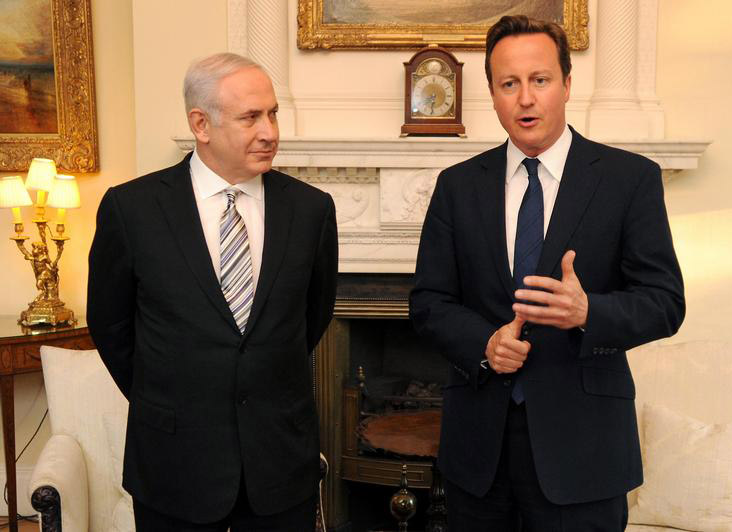Australia/Israel Review
Europa Europa: Friends and Neighbours
May 31, 2011 | Douglas Davis

Douglas Davis
Israeli leaders have good reason to politely reject Europe’s persistent offers to play a substantive role in the peace process. Suspicion about its ability to be an honest broker was set in stone when the European Economic Community, as it then was, issued its Venice Declaration in June 1980. This ringing endorsement of Yasser Arafat’s demand for a state failed to include a balancing demand that the Palestine Liberation Organisation (PLO) leader recognise Israel’s right to exist.
Since then, Europe has experienced myriad internal vicissitudes as it chased the dream of forging its disparate parts into a single economic and political union. But for all its travails, Europe has remained constant in its commitment to Palestinian statehood. Some call it an obsession.
US President Barack Obama understands that peace talks cannot go anywhere with a Palestinian delegation that includes Hamas, which refuses to renounce violence or acknowledge Israel’s right to exist. Not so for British Prime Minister David Cameron.
When Israeli Prime Minister Binyamin Netanyahu visited London last month, Cameron recited the familiar mantra of Britain’s “unshakeable commitment” to Israel’s security. But he went on to seamlessly warn that unless Israel sits down with the Palestinians to negotiate a peace deal, Britain will recognise Palestinian statehood if the UN General Assembly votes on the issue in September.
In Cameron’s bizarre view, the “Arab Spring”, the killing of bin Laden and the Fatah-Hamas unity agreement had opened up opportunities not only to defeat terrorism but also to expand democracy, spread liberty, and, not least, to make progress at the Israeli-Palestinian negotiating table.
If only. If Cameron’s assessment were true, Israelis of all political hues would already be initialling treaties and rolling out red carpets for dignitaries who would be preparing to descend on Jerusalem for a full-blown peace ceremony.
The grim reality is that the world is not standing on the brink of a liberal-democratic Middle East. On the contrary, the “Arab Spring”, where successful, is quite likely to replace corrupt, autocratic nationalists with corrupt, autocratic Islamists.
While the Israel-Palestinian conflict has not formed a significant part of any of the middle-class protest movements, populist anti-Israel rhetoric is certain to be the centrepiece of successor regimes which seek to consolidate power and bind national wounds. There is, for example, a very large question mark over the future of Egypt’s peace treaty after next September’s elections.
Cameron need not take my word for this. Amr Moussa, the outgoing head of the Arab League and former Egyptian foreign minister who is tipped to succeed Hosni Mubarak, placed the issue high on his agenda in an interview with the Wall Street Journal on May 6.
The Mubarak Regime’s attempts to heal the Israeli-Palestinian conflict, he asserted, had “led nowhere” and Egypt now needed policies that reflect “the consensus of the people”. He also acknowledged the inevitability of an Islamist-led administration, with the Muslim Brotherhood in the vanguard, following the pending elections.
Moussa denied that Mubarak nominated him to head the Arab League in 2001 to deflect a possible leadership challenge. Rather, he said, his removal from political life in Egypt was the result of his disagreement with Mubarak over policy towards Israel.
Indeed, Moussa’s popularity in Egypt during his tenure as foreign minister was reflected by the runaway Egyptian pop hit of the ‘90s, “I Hate Israel (I Love Amr Moussa).”
Meanwhile, the interim Egyptian Administration has opened the Rafah border with Gaza and initiated moves to improve relations with Iran.
Nor is the Egyptian-brokered reconciliation between the feuding Palestinian elements likely to bring peace closer. And Cameron should know this. The dominant party, Hamas, is not only avowedly opposed to the existence of Israel but is also formally regarded as a terrorist organisation by the European Union, including Britain.
In its recent unity agreement with Fatah, the jihadist Hamas leaders clearly indicated they had not undergone a Damascene conversion. The head of the Hamas Administration in Gaza, Ismail Haniyeh, was one of the few Arab leaders (along with the Muslim Brotherhood) to publicly lament Osama bin Laden’s passing.
Bin Laden, said Haniyeh, was an “Arab holy warrior” and he called on “God to offer him mercy with the true believers and the martyrs.” He went on to assert that US policy was “based on oppression and the shedding of Muslim and Arab blood”.
As for Israel, he assured worshippers at Gaza City’s Omari Mosque that Hamas would never recognise Israel. “The Zionist project in Palestine must end,” he said, urging the congregation to “pray for the end of Israel.”
David Cameron might consider Britain, as he frequently declares, a “strong friend” of Israel. But it is an odd friend that seeks to coerce the object of its affection to adopt a position of vulnerability to those who, by words and deeds, are committed to its destruction. Small wonder, then, that Israeli leaders regard Europe with deep suspicion and resolutely deny it a place at the high table of Middle East diplomacy.
Tags: Israel






